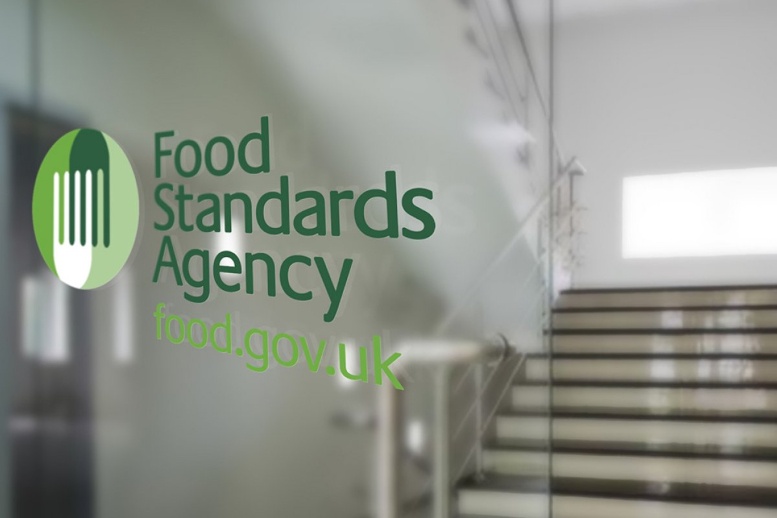The UK’s Food Standards Agency (FSA) has reopened the window for CBD companies to submit food safety applications as some stakeholders continue to question the credibility of the certification process.
Those that failed to make the list now have until May 26 to submit updated applications. The original deadline for applications was March 31 of last year.
“To support businesses to achieve compliance for their products, we are . . . making one final call for evidence from businesses to link their products to credible applications,” said Rebecca Sudworth, Director of Policy at FSA.
“This is an unexpected development as this product information should have been provided to us much earlier in the process,” Sudworth added.
Complaints
The FSA’s policy adjustment comes after the agency received a flurry of complaints following the release late last month of the list of CBD products preliminarily approved under its three-stage review system.
FSA listed 3,536 products from 374 companies that continue to move through the agency’s regime for certifying new or “novel” foods as it seeks to eliminate a flourishing UK gray market that has seen thousands of CBD products show up in retail outlets over the past several years.
To qualify for consideration under FSA guidelines, CBD products already in distribution on the gray market must have been offered for sale to consumers before Feb. 13, 2020. FSA now awaits evidence that some products it excluded were in fact on the market before that date.
While products that pass FSA muster may remain on sale as their food safety applications continue through the agency’s approval process, those that fail FSA scrutiny must be removed from the market.
Publicly traded CBD maker Cellular Goods, one of the companies that failed to make the FSA’s March 31 list did just that on Friday, voluntarily suspending sales of its ingestible range of products after being notified by Trading Standards, the UK consumer protection enforcement agency.
“We are disappointed by the FSA’s stance. We will continue to engage with the regulator as we believe our products are safe, of a high quality and appropriate to be on the market. We hope the matter can be resolved soon,” said Cellular Goods CEO Anna Chokina.
FSA has stressed that approvals granted so far are preliminary and that some products could be eliminated at later stages of their review.
‘Discriminatory, nonsensical’
Attorney Mark Tallon of the Cambridgeshire-based law firm Legal Foods, a specialist in European and UK food and cosmetics, suggested FSA should remove all CBD products from the market until the novel foods regulation is implemented properly, calling the process “discriminatory and nonsensical,” and observing that many companies have made considerable investments in the application process.
Other stakeholders have questioned the FSA’s preliminary approval of some products that made the March 31 list while also casting doubt on the exclusion of others, suggesting the agency’s review is flawed. The UK-based website The Grocer has identified 23 products that failed to meet FSA guidelines and are presumably slated for removal from major retail outlets. That number does not account for the total number of products rejected.
FSA said novel food applications being accepted under the May 26 cutoff must remain off the market until they have completed the process and secured authorization.
Pushback from companies excluded from the list released last month came swiftly. Some that failed to make the FSA list have already offered new evidence linking multiple products to reconstituted applications.
UK’s $1 billion market
Several others said they were considering legal challenges in their determination to qualify their products for the UK’s lucrative market for consumer CBD products, estimated to be approaching $1 billion (~£780 million; ~$926 million). The UK’s Association for the Cannabinoid Industry has said the UK is the world’s second-biggest CBD market behind the USA.
“You can have a company that may have invested more than €360,000 (~£300,000; $390,000) on a novel foods dossier but be on the market the day after the FSA’s 13 February (2020) deadline not being allowed a sell-through,” Tallon told the Nutra Ingredients website.
“On the other hand, you could have a firm with no data – only the promise of generating some – but because they were on the market before that date (they are) permitted to remain on the market,” Tallon said.
Tallon cautioned that companies who want to make legal challenges to FSA’s decisions have only three months to file a judicial review. Advancement or exclusion from the food safety process depends on whether “the application is credible and the FSA has, or is shortly expecting to receive, significant scientific evidence from the applicant with which to judge safety,” Emily Miles, Chief Executive of the FSA, has said.
FSA said it will update the public list twice before June 30, with the first update due “very shortly.” After 30 June, no new products will be added and any changes made after that date will only reflect modifications to the status of products already in the novel foods authorization process, the agency said.

